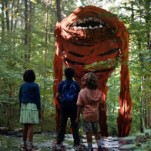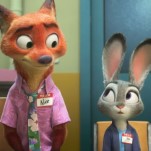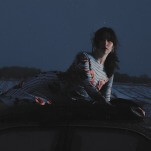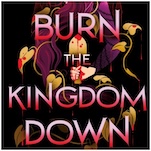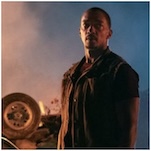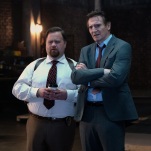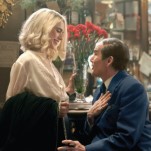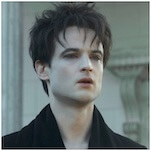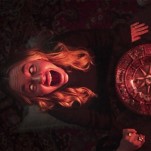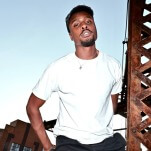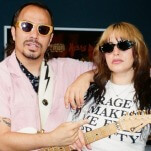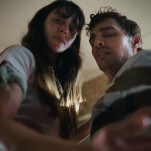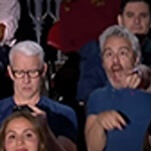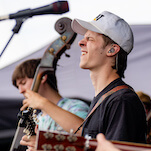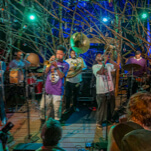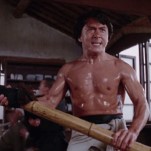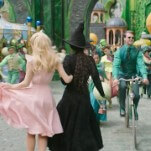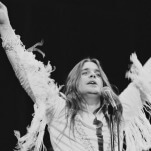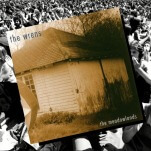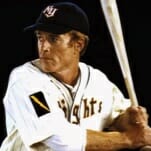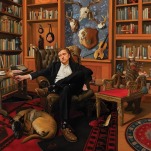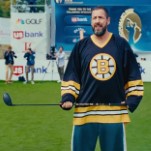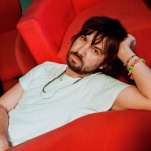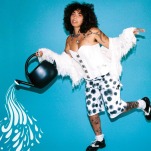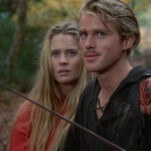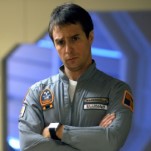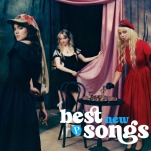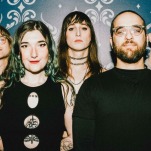The Face You Know: An Interview with Anchorman’s David Koechner
The email from the publicist pierced the heart of the David Koechner paradox: “Your readers know his face, quote his lines and dress up like him for Halloween, yet many don’t actually know his name. “Oh, that guy!” is David Koechner, one of the busiest men in show business.”
He’s Champ Kind from Anchorman, Todd Packer from The Office and a player in some of the biggest comedies in the last 15 years—Austin Powers, the 40-Year-Old Virgin and Talladega Nights. In December, he’ll bolster that resume with Anchorman: The Legend Continues, the long-awaited sequel to the 2004 blockbuster. Any American who consumes even trace amounts of television and film would recognize him immediately, but far fewer could put the name to the face. Koechner would love to see that change, and he spoke with Paste about growing up in a small town, his one-year stint at Saturday Night Live, breaking into the movie scene, and breaking through the “that guy!” barrier.
What’s it like being a part of something as massive as the Anchorman sequel?
You have to count your blessings, and that’s a big one. We shot it earlier this year from the end of February to the middle of May, and I tell you, it’s just a thrill and this movie certainly won’t disappoint anybody. It seems like the appetite is whetted for this picture unlike anything I’ve ever seen.
The press blitz is already huge.
I know, and look, the full media blitz isn’t really on yet! Just the passive blitz is incredible. But I’m anticipating going into some of the theaters and watching people at the movie, because I think it’s just going to be a thunderclap.
You’ll actually go see it in a theater? Do you go in disguise?
It’ll be after everyone’s sat down and the movie’ss already started, and you’ll dip in there for a second just to get a taste of how people are enjoying it. It’s usually just that some fellas get together that are in the picture, and it’s not for every movie, but for something like this it might have to happen. I think it’s going to be like a rock concert.
Along with Anchorman, you’re taking on some more dramatic roles. What’s that transition been like?
Cheap Thrills is going to debut in February, and it’s a thriller that has some twisted comedic elements to it. I play a serious character, and it’s a grind, it sucks you in and pulls you along. And yes, it’s a welcome change. There’s a presumption that comic actors can’t do dramas, that they won’t quite get it, when actually the opposite is true. Comic actors can do it because they’re human and we all have drama in our lives. I’ve found it’s much harder for dramatic actors to do a comedy, but I know dramatic actors and producers sometimes get nervous about whether or not a comic can pull off a dramatic role.
Your publicist brought up this idea that while your face is familiar to millions, your name might not be. Is that frustrating to you?
-

-

-

-

-

-

-

-

-

-

-

-

-

-

-

-

-

-

-

-

-

-

-

-

-

-

-

-

-

-

-

-

-

-

-

-

-

-

-

-

